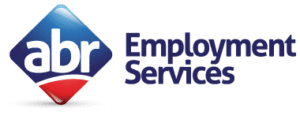Busting Millennial Employee Myths: How HR Can Keep the New Workforce Engaged
Just Who Is a Millennial Employee?
The Pew Research Center states Millennials are on the cusp of surpassing Baby Boomers as the nation’s largest living adult generation, per population projections from the U.S. Census Bureau. As of July 1, 2016 (the latest date for which population estimates are available), Millennials, whom we define as ages 20 to 35 in 2016, numbered 71 million, and Boomers (ages 52 to 70) numbered 74 million. Millennials are expected to overtake Boomers in population in 2019 as their numbers swell to 73 million and Boomers decline to 72 million. Generation X (ages 36 to 51 in 2016) is projected to pass the Boomers in population by 2028.
With those numbers, your HR team will benefit from getting up to speed on this generation as swiftly as possible.
Turn Millennial Employee Myths into Mutual Benefits with Focused Engagement Strategies
At ABR Employment Services, we understand that millennial myths may leave you with concerns. Perhaps you are not sure how you can keep this population of workers engaged. It is easy to become caught up with worry that another employer, promising new opportunities and skills, will lure them away.
There are plenty of ways that you can meet millennials in the middle for mutual satisfaction. We have pulled up and debunked four common millennial employee myths. We have also come up with four respective strategies to keep this invaluable generational addition to your workforce engaged:
Myth 1: Millennials Are All Job-Hoppers
The Wall Street Journal notes that the millennials did bear witness to the Great Recession of the late 2000s. The housing crisis fallout gave rise to countless layoffs across the nation and around the world. Such events might have instilled a fear of professional commitment in millennials that employers may need to counter in various ways. The article does offer hope to employers who worry that millennials will live up to their “job-hopper” reputation. Millennials interviewed in the article expressed a desire for job security, buying a home, and setting roots.
Engagement Strategy 1: Invest in Your Millennial Team Members
This engagement strategy is two-pronged, and both parts of the engagement strategy are true for every generation. The first solid investment to make in your millennials comes down to offering a fair wage or salary. Also, make sure to provide regular opportunities for merit increases to remind your young team members that you value their hard work, skills, and commitment to help cement a lasting professional bond.
The second means of investing in and engaging your millennial employees to keep them on your team involves providing new opportunities for growth and advancement within your organization. entry-level to professional jobs, there is always room to grow in these fields. Your fostering a natural desire to advance will pay off for both of you.
Myth 2: A Millennial Employee Is Entitled and Narcissistic
While some HR managers and employers might confuse millennials’ sometimes seemingly flighty behavior and their deep connection with their smartphones and social media as entitled and narcissistic, millennials tend to have a greater connection with the world at large. Millennials become exposed to the best and the worst of the world early via the internet and social media at an early age, but these same tools have helped them search for and find ways to become involved in making improvements where needed as they have grown into adulthood.
Engagement Strategy 2: Show Millennials Your Company Believes in Making a Difference
Millennials want to work for companies that are involved with the community. Share your organization’s charitable efforts, and ask millennial employees how they might like to become involved. You may earn bonus points for incorporating social media strategies that tap into their natural affinity and aptitude for technology.
Myth 3: Millennials Are Clingy and Need Constant Feedback
The millennials largely grew up with what society has dubbed “helicopter parents.” While not a universal truth, millennials may have parents who were more openly doting than previous generations. That does not necessarily translate to a negative trait, though. In the workplace, this need for feedback often merely means employees want to make sure they are meeting your expectations.
Engagement Strategy 3: Manage Performance with Constructive Criticism
The Ivey Business Journal reported that regular positive constructive performance management was one of the top five drivers in millennial engagement in the workplace. This approach benefits your company and the employee. Millennials get the direction they need, and you get a happy employee willing to learn new skills and make improvements to give you what you need.
Myth 4: Millennial Employees Use Technology The Most & Prefer Using It To Learn New Skills
Millennials have often led older Americans in their adoption and use of technology. But there has also been significant growth in tech adoption in recent years among older generations – particularly Gen Xers and Baby Boomers, according to the Pew Research Center. And, Fortune reports that when it comes to learning new skills at work, Millennials prioritize face-to-face contact over digital options.
Engagement Strategy 4: Create A Brand Ambassador Program
Employees are trusted more than the organizations they work for. Even if you have an internal marketing department, create an employee brand ambassador strategy to enhance your company social media marketing. You’ll create a win-win for both employees, and your company bottom line!
Learn More About Millennials and What They Mean for Your Organization
At ABR Employment Services, we learn more about millennial workers all the time. We would love to talk to you about what this generation of workers has to offer you and how you can help them consider your organization their professional home.
Editor’s Note: This post was originally published in March, 2017 and updated in November, 2019.
